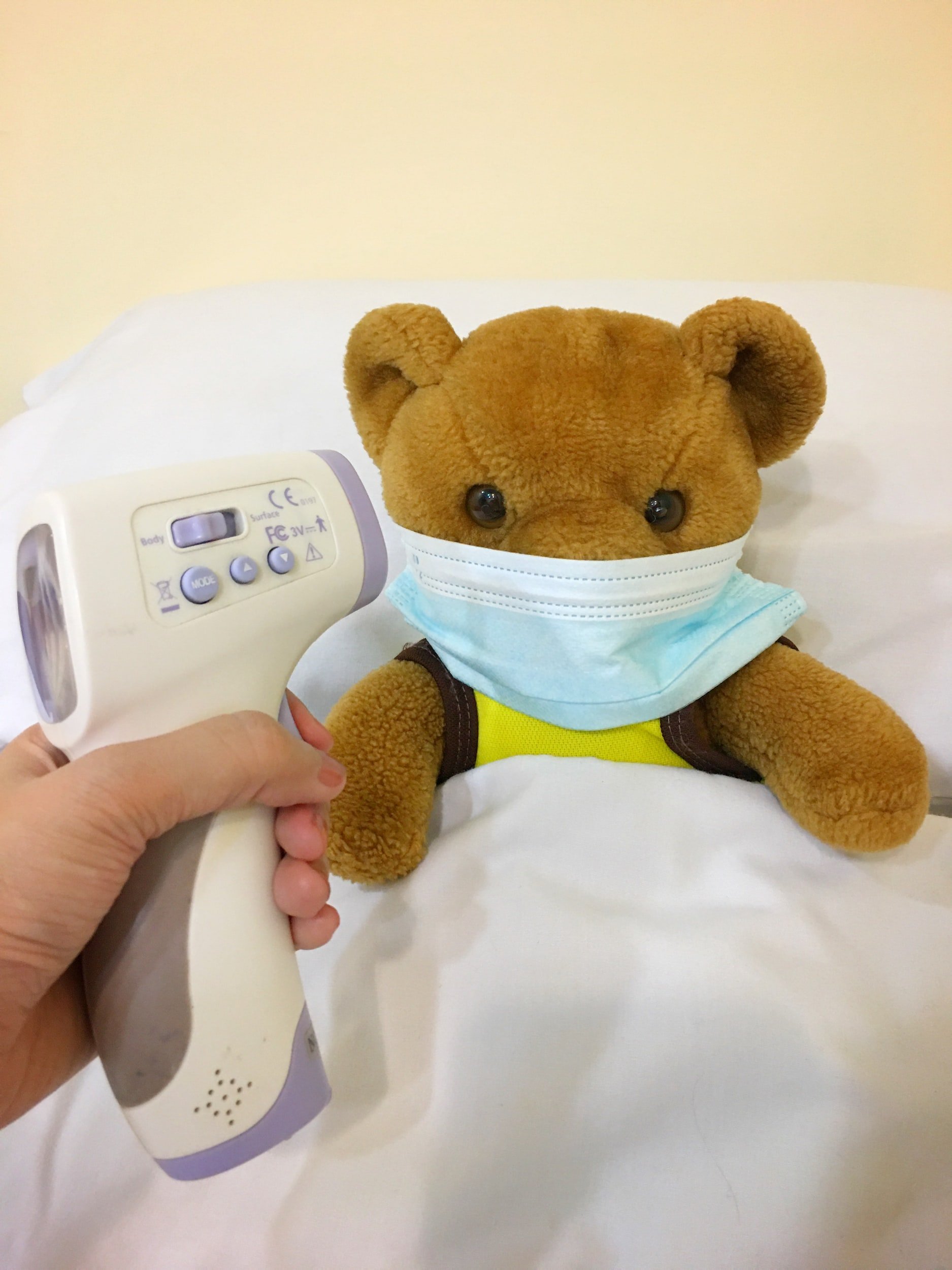My kid has a fever! What now?
Ok, I’m going to blow your mind here, folks. Fevers do not always need to be treated!
A reminder: Fever is a normal body response to infection. If your child is handling it well, most of the time you can keep take a holistic approach and focus on closely monitoring them (barring a few specific situations, such as when your child is very young or has underlying medical conditions).
Once again, I need to put in a caveat: these posts are for education, and cannot replace a professional medical assessment, so please reach out to a clinician if you have questions about your child.
So why do we ever treat a fever?
Its a good question. Why bother treating it if fever is actually an indication of a healthy immune response?
The problem is that fever makes some children quite uncomfortable. It can cause chills, rapid heart rate/breathing, headaches, body aches, & increased fluid loss. Uncomfortable children tend to be less cooperative about things like drinking fluids.
The Pediatrician Mom Tip: When your child has a fever, your priority is to optimize your child’s comfort and to watch them carefully for worsening.
How to treat a fever
Think about approaching fever with 2 main things: fever reducers, and fluids.
Fever-reducers
The two main fever reducers we have available are Acetaminophen (Tylenol) and Ibuprofen (Motrin, Advil). Here is what you need to know.
No fever reducing medication of any sort under 2mo
No Ibuprofen under 6mo
Dosing should ideally be based on weight. See my free guide for dosing information.
Acetaminophen can be given every 4-6 hours as needed
Ibuprofen can be given every 6-8 hours as needed
In general, we do not routinely recommend alternating medications because it is easy to make an error and accidentally overdose. With that said, the two medications have different mechanisms of action, so they can both be given at the same time. Usually I recommend starting with one, but if you find that the time to the next dose has not elapsed and your child is uncomfortable (note that I am emphasizing comfort, not the number on the thermometer!), then you can give the other one.
The Pediatrician Mom Tip: If you have to give both medications concurrency, make sure you write it down. Especially when there are multiple caregivers, some of whom may be tired because their child is sick and no one sleeps well in these situations, mistakes can happen. I speak from experience here, my friends.
Neither medication should be given on an empty stomach
Which is better, Ibuprofen or Acetaminophen?
Technically, there is some data that suggests that Ibuprofen may work slightly better for pain than Tylenol (PMID: 33125495) in kids < 2 years, but the difference is not huge - so use whichever you prefer.
Anecdotally, some kids to seem to do better with one medication over the other, but since both are considered safe and effective, I think either is fine to try.
Some factors to consider include frequency of administration (if you have to wrestle your toddler to give them medication, there is a good argument to be made for choosing the one that needs to be given less frequently—Ibuprofen). Sometimes one can be harder on the stomach than another, and can contribute to stomach discomfort.
An important fever-reducer hack: In the US, infant and child Acetaminophen are both the same concentration, but the infant version is usually far more expensive. So it is worth getting the infant version once so you have the right syringe, but after that, children’s acetaminophen is a better purchase. NOTE: THIS IS NOT TRUE FOR IBUPROFEN.
What about fluids?
Higher body temperatures lead to more fluid loss. So fluid requirements increase, and it can be hard to keep up.
Read this post for all the important details regarding hydrating your child.
What if the fever-reducer doesn’t bring the temperature to normal?
Its okay. In many cases the medications will not bring the temperature down to “normal” but will only move it a few degrees downwards. In any case, remember: your emphasis should continue to be on comfort, hydration, and assessing the overall whole-child picture. If your child starts to perk up and act better, that’s a good indication that the meds are helping.
When to call the pediatrician
This is not a comprehensive list. In general, always err on the side of calling your pediatrician if you have any concerns about your child. There is a lot to be said for a parent’s gut instinct, and I promise: your pediatrician would rather you called!
If your child is not improving within a few days, or if they seem to be getting worse, call your pediatrician. Other concerning symptoms include:
Fever <3months old
Change in mental status (not responding appropriately, seems confused, is difficult to arouse, or is inconsolably fussy)
Fever with difficulty breathing, seizures, unusual bruising, or rash
Fever with a stiff neck, or accompanied by severe pain anywhere
Fever > 3-5 days (because there are specific conditions we become more concerned about at this point, such as Kawasaki syndrome or secondary infections)
Still “acting sick” even after temperature comes down with fever reducer
If your child seems to be getting worse
Inability to keep down fluids or refusal to drink
Dehydration — see my prior posts for signs to look for.
Anything else tickling your spidey sense!!






